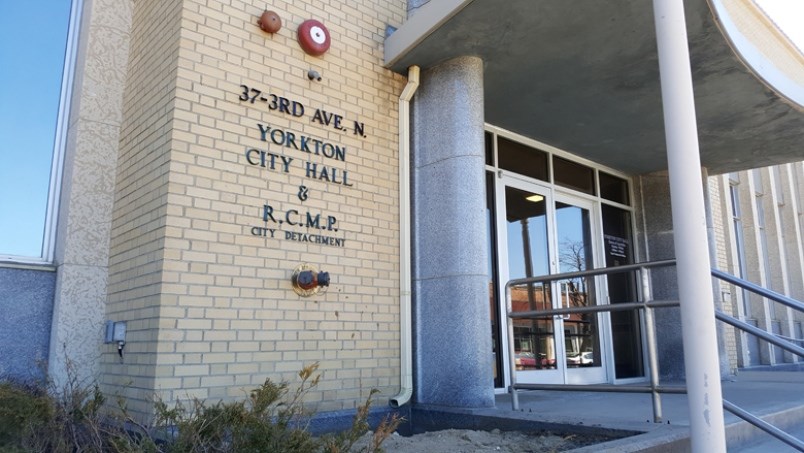Yorkton Council unanimously approved revisions to the City’s policy regarding relocating single unit dwellings into Yorkton.
“The current policy on relocating existing dwellings into Yorkton fills a void in zoning and building regulations that apply only to new construction such as conventional site built, modular or ready-to-move (RTM) dwellings. The policy provides both a mechanism to move an existing dwelling into the City, and also to ensure its quality so that it will maintain or enhance the value of neighbouring homes,” explained Michael Eger Director of Planning, Building & Development with the City at the regular meeting of Council Monday.
However, there was a suggestion the policy needed changes, added Eger.
“A recent application to relocate a dwelling into the City brought to light some issues with the current policy. The policy is lacking in clarity which created confusion for both the current Administration and the applicant. The policy also does not provide Administration or Council with enough evaluating criteria to establish whether a dwelling is a suitable candidate for its proposed location,” he noted.
Upon review of the last application, Council commented that Administration consider the following changes to the policy:
*Public notice to create an opportunity for neighbouring property owners to be alerted to an application and to provide input;
*A requirement to complete site improvements such as driveways and landscaping.
*A cap on the age of original construction to ensure newer, more code compliant homes are brought into the City.
Eger did add that the relocation of homes is not without its benefits citing;
*They provide an affordable housing option, especially for building-moving contractors;
*Like newly-constructed dwellings, they can create work for local trades professionals;
*The construction of dwellings increases assessable value and the taxation collected by the City;
*Vacant lots are prone to neglect and can lead to issues with excessive weed and grass growth and complaints from neighbours;
*Finished dwellings help to improve the aesthetics of a residential neighbourhood; and
*Relocated dwellings are typically moved on to lower priced lots within existing neighbourhoods where the City already provides a full range of services.
So a number of key revisions were put forward for Council.
The first addressed the need to clearly state what is considered as a relocated dwelling (so as not to be confused with newly-constructed RTM or modular dwellings).
The renewed policy will also broaden the locations where these dwellings can be relocated.
They would still be prohibited in the Riverside Terrace subdivision, but as other subdivisions age and as lots continue to be vacant, allowing relocated dwellings increases options to enable development. The quality of the dwellings would be ensured through additional regulations in the policy.
It will be required that dwellings to be compatible with the proposed neighbourhood as it relates to age, appearance, size and site configuration.
For example, this would allow an older character home to be moved in to the oldest neighbourhoods in Yorkton, while also potentially allowing a 2000’s era home into our newer neighbourhoods.
This would remove the current minimum floor area requirement of 1,000 square feet, and allow Council to apply more context in approving a dwelling based on size. For example, an 800 square foot home might be completely appropriate in one neighbourhood, while it might be that a home no smaller than 1,200 square feet be appropriate in another.
It will now require dwellings to be fully compliant with current construction codes, including Building, Fire, Energy, Plumbing & Electrical codes.
This would ensure not only quality, but also equal treatment to other new structures.
If there is no proof of compliance (inspections under recent renovations or construction) these dwellings would essentially have to be gutted and potentially re-wired, re-plumbed, properly sealed and finished.
It will also require that all outstanding building and site improvements be completed prior to occupancy of the dwelling. In lieu of this, the revised policy would introduce the option for a refundable deposit would be the lesser of $5,000 or the value of items not yet completed.
And finally it will often become necessary due to our short construction season.
Eger did point out few homes are moved into the City.
“Introduce a Public Notice requirement to ensure stakeholders and nearby property owners have a say in what type of home can be moved into their neighbourhoods.
There has been a low frequency of relocated dwellings being moved into the City, with only three in the last 15 years. With relatively few infill lots remaining, it is expected that trend would continue under the current policy,” he said.
“Regardless, these revised regulations will help to ensure better quality dwellings and achieve the intent of the policy. The revisions will also provide Council with more confidence in their decision-making, and provide Administration with the necessary tools to hold applicants accountable for their promised renovations and site improvements.”



